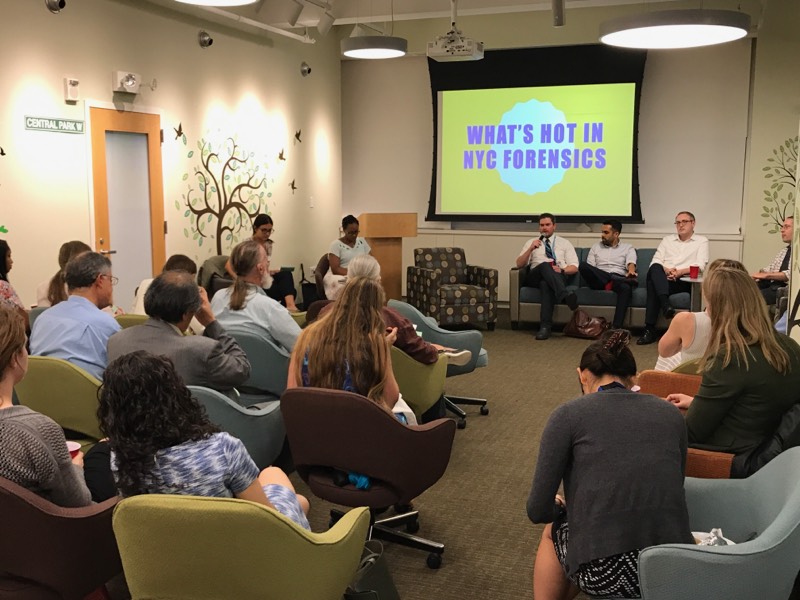Forensic Committee
Chairs, Marissa Goldberg D.O., and Stuart Kleinman, M.D.
Committee Charge
- Corrections - Provide guidance/education regarding design and use of SHU (Segregated Housing Units) for the (severely) mentally ill, particularly within the context of the general reduction of use/anticipated reduction of use of ‘solitary confinement,’ and the ferment at Rikers Island, which potentially promises significant operational and structural changes. This task overlaps with that of the mission of CAGR, but is not identical to such.
- Courts - Educate judges regarding mental health issues, such as dangerousness of the severely mentally ill, PTSD and its potential manifestations, and the kind of discovery information psychiatrists need to effectively advise courts.
- Law Enforcement - Educate law enforcement personnel regarding severe mental illness, toward attempting to reduce unnecessary or excessive use of physical force in managing ‘Emotionally Disturbed Persons.’ This has become particularly important with the (actual or perceived) increase in number of homeless mentally ill.
*If you would like more information about this committee, please contact us at [email protected].
Previous Events
Contributing to Public Safety: Fitness for Duty Examinations of Law Enforcement & Aviation Personnel
December 17, 2018
Fitness for duty evaluations are among the most common assessments performed by both general and forensic psychiatrists. They are routinely requested by employers to determine whether their employee is able to return to work safely after a disability-based leave. These decisions, and how they are communicated, may have profound, yet unforeseen future legal consequences. Safety of others and the evaluee is often at issue, as the employer confronts potentially contradictory legal requirements to maintain a ‘safe workplace’, while also protecting the privacy rights of the employee. Further, the psychiatrist may face legal liability regarding any violence in the work place committed by the returning employee.
This panel addressed the special considerations regarding fitness for duty/return to duty evaluations, including potential conflicts between patient privacy and provision of information needed by the employer to potentially permit the employee to return to work, as well as the types of legal risks for psychiatrists.
Bar Presentation on Trauma
November 20, 2018
 Forensic Committee members gave a presentation at the NYC bar to lawyers on how trauma can affect their clients the effects of working with traumatized individuals on professionals. Forensic Committee members gave a presentation at the NYC bar to lawyers on how trauma can affect their clients the effects of working with traumatized individuals on professionals.
Changes in Policy and Practice in Asylum Law
February 27, 2018
As the political landscape of our country has changed, immigration policy has become an increasingly heated, divisive national issue. This debate directly impacts individuals seeking asylum and if they are deemed worthy of being granted asylum. Although possession of a 'well-founded fear of persecution' remains a guiding standard in determining qualification for asylum, interpretation of this standard is in flux. This panel discussed recent changes in policy and practices in asylum law and how psychiatrists can become involved in this important issue.

What's Hot in NYC Forensics?
September 27, 2017
Given the increase of people with mental illness within the criminal justice system, New York City has become one of the front runners in developing innovative public programs and services to help this underserved population. This panel showcased leaders from the variety of forensic psychiatry services available in NYC, including jail treatment, juvenile detention, court evaluations, diversion services, and forensic ACT. They discussed developments in the field, their jobs, and career paths.

|